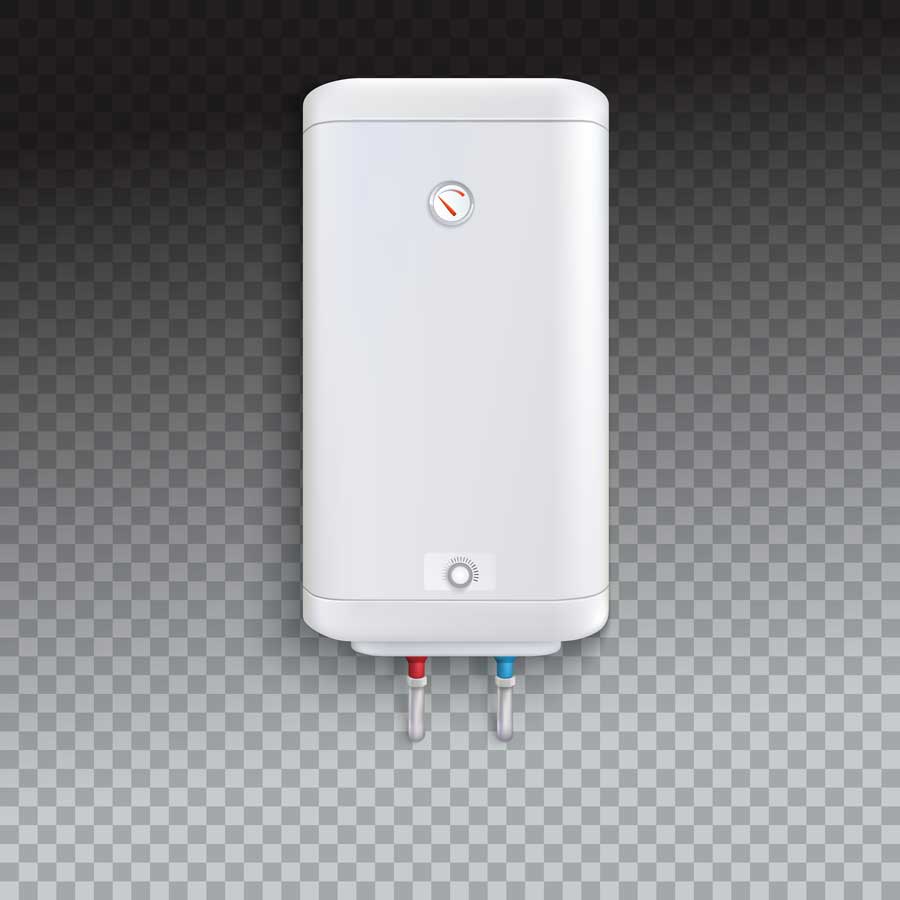Illinois residents spend 16% of their residential energy usage on water heating, according to the Environmental Information Administration. If you’re going to be spending that much on something, you need to be informed about it. We’ll explain the two most common types of water heaters and the benefits and disadvantages of each. Let’s start with the more widespread storage tank heater.
Storage-Tank Water Heaters
An Overview
Storage tank water heaters have long been the more common type of water heater. Even today, it retains a higher market share. Why is it so well-liked by consumers?
Tank storage heaters typically hold between 20 and 80 gallons. This allows hot water to be delivered to multiple appliances reasonably comfortably. Still, there are limits. During periods of exceptionally high usage, you can run out of hot water. This is what happens when you run out of hot water during a particularly long shower.
Additionally, standby heat loss makes a storage tank system less efficient than a point-of-use system. For families who don’t use much hot water, you could be using a lot of your energy to heat water that no one will actually use. Still, tank water heaters cost less to install, which offsets the comparatively low efficiency.
The Benefits
If you are happy with your current tank water heater, you probably want to replace it with something similar. Luckily, newer energy-efficient models can lower your water heating costs. Tankless will cost less in the long run, but if you are planning on moving in a few years or don’t want to spend as much up-front, a storage-tank water heater is the way to go.
Tankless Water Heaters
An Overview
The conventional tank system has to heat and store water. A tankless unit heats water on demand. Cold water rushes past heating elements that bring it to the desired temperature in a matter of seconds. This process ensures that you will always have water of your desired temperature as long as you don’t exceed flow rates. If you enjoy taking long showers, this is the water heater for you.
You can install a point-of-use system that works on a single shower or dishwasher, or you can go with a whole-home installation.
The Benefits
If you care about energy-efficiency, tankless is superior to a storage tank system due to the lack of standby heat loss. They take up less space, tend to require fewer repairs, and have a longer lifespan than a conventional water heater.
Additionally, tankless water heaters typically run on electric, making them even cheaper to run than your typical tank heater fueled by natural gas.
What does the added efficiency mean, and is it worth the higher installation costs? EnergyStar estimates that you could save nearly $2,000 in a four-person household over the lifetime of your system. The savings could be even higher if you use fewer gallons of hot water than the typical family. A more energy-efficient model will also shrink your carbon footprint.
When Should I Look to Buy a New Water Heater?
Just like the other major appliances in your home, your water heater won’t last forever. Typically, a tank system will last 10-12 years if you keep it well maintained, and an on-demand tankless system tends to last about 20 years. If your system is getting older, it’s best to start shopping around now before you get caught up in a costly repair due to a major failure.

